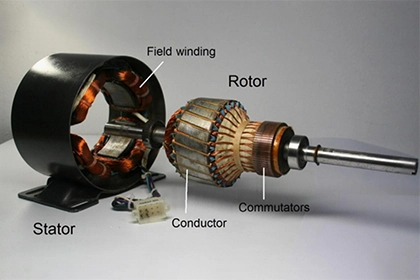
Is a motor an engine?
People use both interchangeably, but the difference is that motors run on electricity and engines run on combustion. The engine converts various forms of fuels into mechanical force, while the motor transforms electrical energy into mechanical energy.
Both electric motors and engines are devices that convert energy into mechanical motion. They are often used interchangeably in spoken language, but in reality, they are different types of devices. In this article, we will explore the main differences between electric motors and engines.
What is an electric motor?
An electric motor is a device that converts electrical energy or other forms of energy into mechanical motion. For example, an electric motor uses electrical energy to generate a magnetic field that interacts with a current-carrying conductor to produce mechanical motion.
What is an engine?
An engine is a device that converts fuel into mechanical motion. The most common type of engine is the internal combustion engine, which burns fuel to produce a high-pressure gas that is used to turn a crankshaft and generate mechanical motion.
Distinctions
Although both electric motors and engines are used to produce mechanical motion, they differ in several key ways.
- The main difference between the two is the source of energy used to produce the motion. Motors use electrical, hydraulic, pneumatic or other types of energy, while engines use fuel.
- Electric motors and engines also differ in their construction and internal design. Electric motors are usually simpler, smaller, and have fewer moving parts than engines.
- Engines are better suited for high-power applications, while electric motors are better suited for low-power applications.
Conclusion
In summary, an electric motor is a device that converts electrical or other forms of energy into mechanical motion, while an engine is a device that converts fuel into mechanical motion. These two types of devices differ in various aspects, such as energy source, internal structure and application.



Leave a Comment